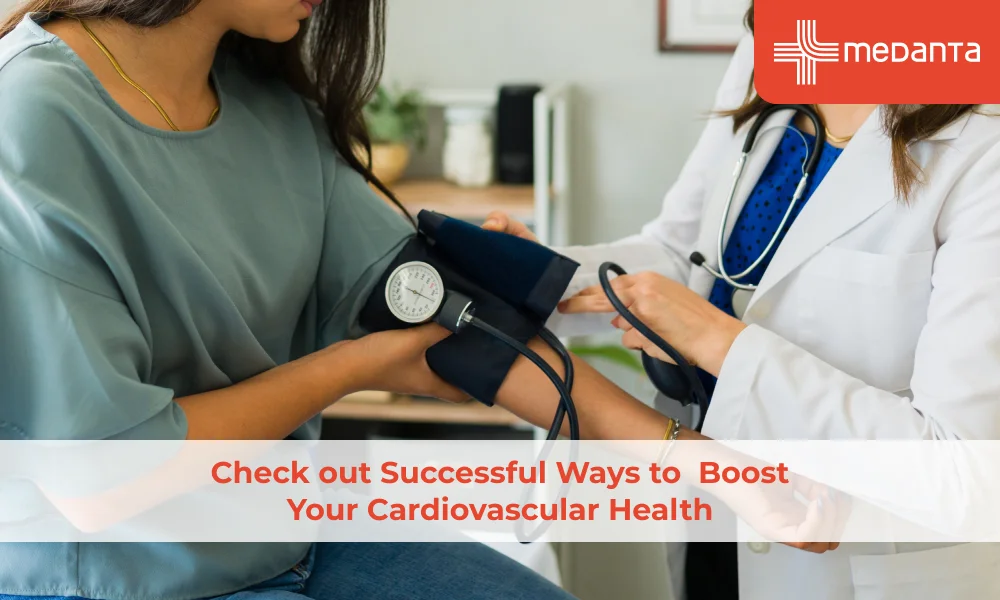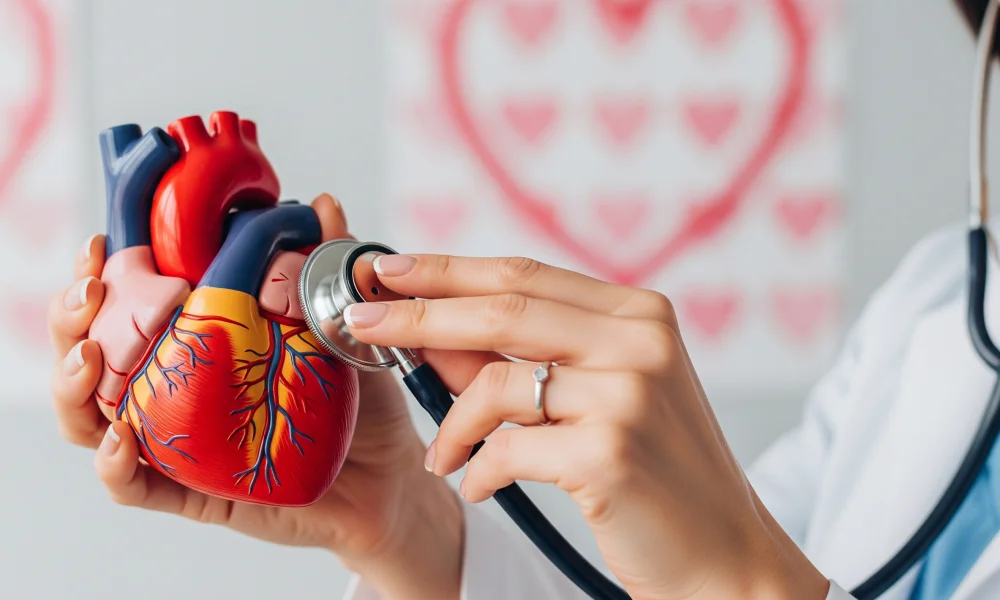Check out Successful Ways to Boost Your Cardiovascular Health

TABLE OF CONTENTS
The cardiovascular system, also known as the circulatory system, consists of the heart, veins, arteries, and capillaries. The circulatory system is divided into the systemic and pulmonary circulatory systems. Each cardiac cycle comprises two phases: systole (relaxation) and diastole (contraction).
The cardiac system is, therefore, very important and needs to be taken care of. Certain conditions can affect the heart, including heart attack, stroke, heart failure, and arrhythmia.
This may be caused due to various reasons such as genetics, bad lifestyle choices, the presence of other chronic diseases, age-related, etc. With age especially, the heart becomes weaker as the arteries have a higher probability of becoming stiff, these further increase incidences of high blood pressure and associated cardiovascular issues. Therefore, it is important to take care of your cardiovascular health.
How does the circulatory system work?
Our circulatory system operates with the help of various apparatus, which mainly include the heart, lungs, and blood vessels which are arteries, veins, and capillaries. They circulate blood around the body to ensure oxygen-rich blood reaches each body tissue to maintain proper functioning. The system functions in the following ways:
The bottom right chamber of the heart (right ventricle) pushes oxygen-deficient blood toward the lungs through the pulmonary artery.
Blood cells then accept oxygen molecules in the lungs.
Then, via pulmonary veins, the oxygenated blood reaches the heart’s left atrium (upper heart chamber) from the lungs.
The left atrium pushes oxygenated blood into the left ventricle (lower chamber).
This part of the heart pumps blood toward the rest of the body through the arteries.
Blood collects and transfers nutrients, hormones, and waste products.
The veins carry deoxygenated blood back to the heart, and the system continues.

What conditions affect the circulatory system?
Many conditions can affect cardiovascular health, such as:
Aneurysms:
The weakening and enlargement of the artery wall cause aneurysms. The weak spots may bulge out or even rupture, causing life-threatening conditions. Aneurysms might cause damage to any artery, but the most common are aortic aneurysms, abdominal aortic aneurysms, and brain aneurysms.
High blood pressure:
Blood is pumped out with high pressure through the arteries ensuring that blood reaches every part of the body. When this pressure gets too high, one may develop a condition of high blood pressure. This can occur when the arteries become less elastic, or a blockage develops due to less blood reaching organs. High blood pressure may lead to the development of other risk factors for cardiovascular diseases, such as heart attacks and strokes.
Plaque deposits:
High cholesterol levels and diabetes are the leading cause of the deposition of fat and other substances in the blood. These substances then aggregate to form plaques on artery walls. This condition is called atherosclerosis.
Venous disease:
Venous diseases are known to affect veins present in the lower parts of the body. When blood cannot circulate freely back to the heart, problems like chronic venous insufficiency and varicose veins occur. Deep vein thrombosis (DVT), a blood clot in the legs, may even lead to a life-threatening pulmonary embolism.
How to boost cardiovascular health:
WHO reports show cardiovascular diseases are one of the leading causes of death across the globe. It is of utmost importance to take care of your health to improve your physical well-being, especially heart health. Despite certain uncontrollable risk factors like age, genetics etc, a few simple steps, when incorporated regularly, can improve cardiovascular health.
Consume plenty of fruits and vegetables:
Consumption of low-calorie, nutrient-rich foods like fruits and vegetables help maintain a healthy weight and prevent heart-related health issues like high blood pressure, inflammation, etc. It reduces the risk of any heart disease caused by those conditions.
Exercise regularly
Staying physically active by exercising regularly can help prevent obesity, keep hormones in a good balance, and even help regulate blood sugar and blood pressure levels. Moderate physical activities that engage the cardiovascular system are recommended for people above 40 years of age to keep the heart younger.
Include Almonds and Walnuts in Your Diet:
Almonds and Walnuts are replete with numerous health benefits. Almonds are known to help control blood sugar and blood pressure levels and reduce cholesterol. Walnuts help improve artery health and reduce inflammation related to heart disease as they are rich in Omega-3 fatty acids.
Cut down on alcohol and tobacco products:
The consumption of alcohol and tobacco products impacts the heart adversely. High and frequent intake of alcohol can lead to irregular heart rhythms, high blood pressure, heart muscle damage, and fatal strokes.
Choose healthy cooking methods
Some cooking methods such as baking, grilling, steaming, boiling, or poaching help preserve the natural ingredients in vegetables. A higher intake of butter and ghee may impact the heart, so instead, the smarter options are low-fat oils.






